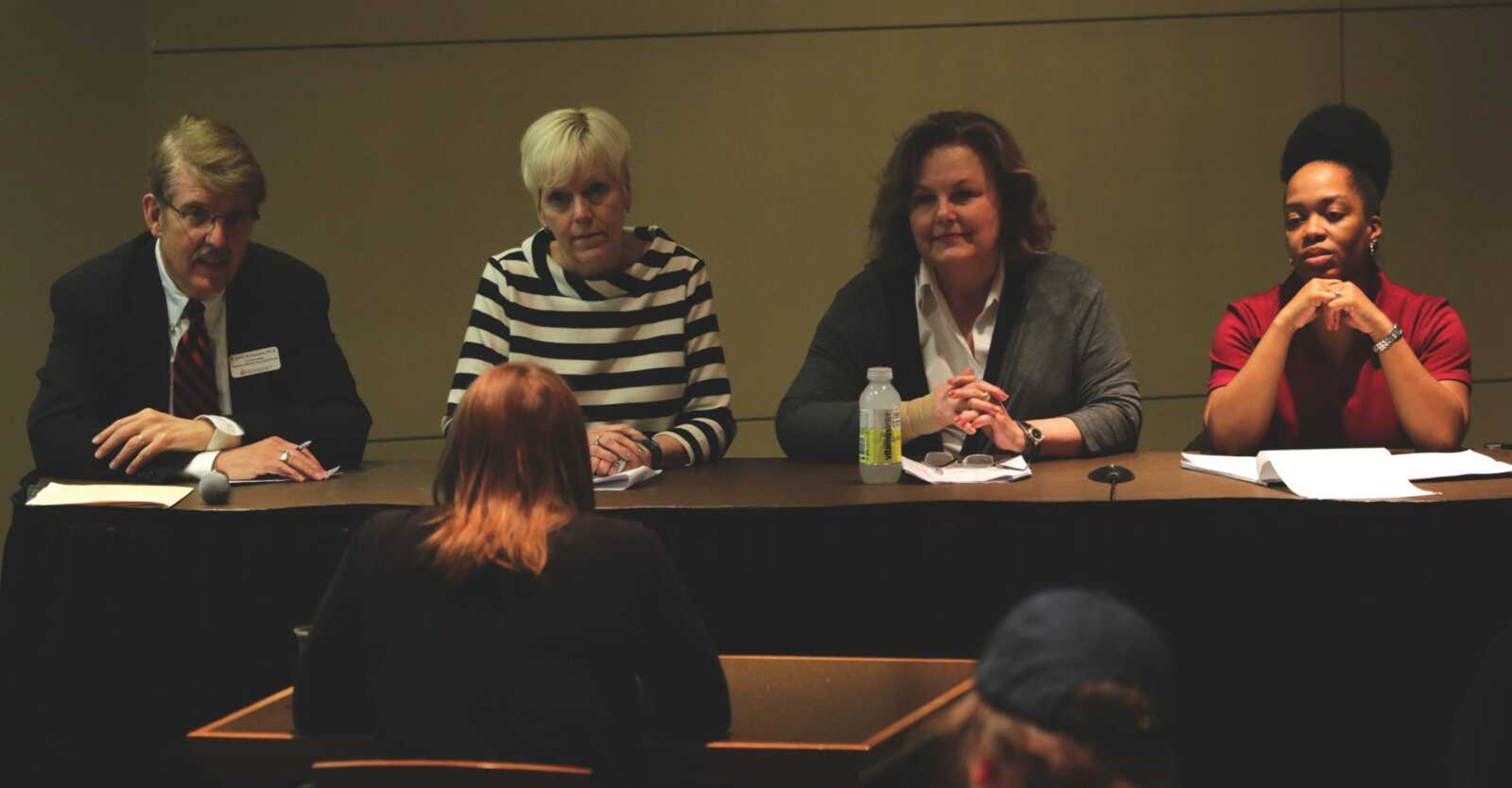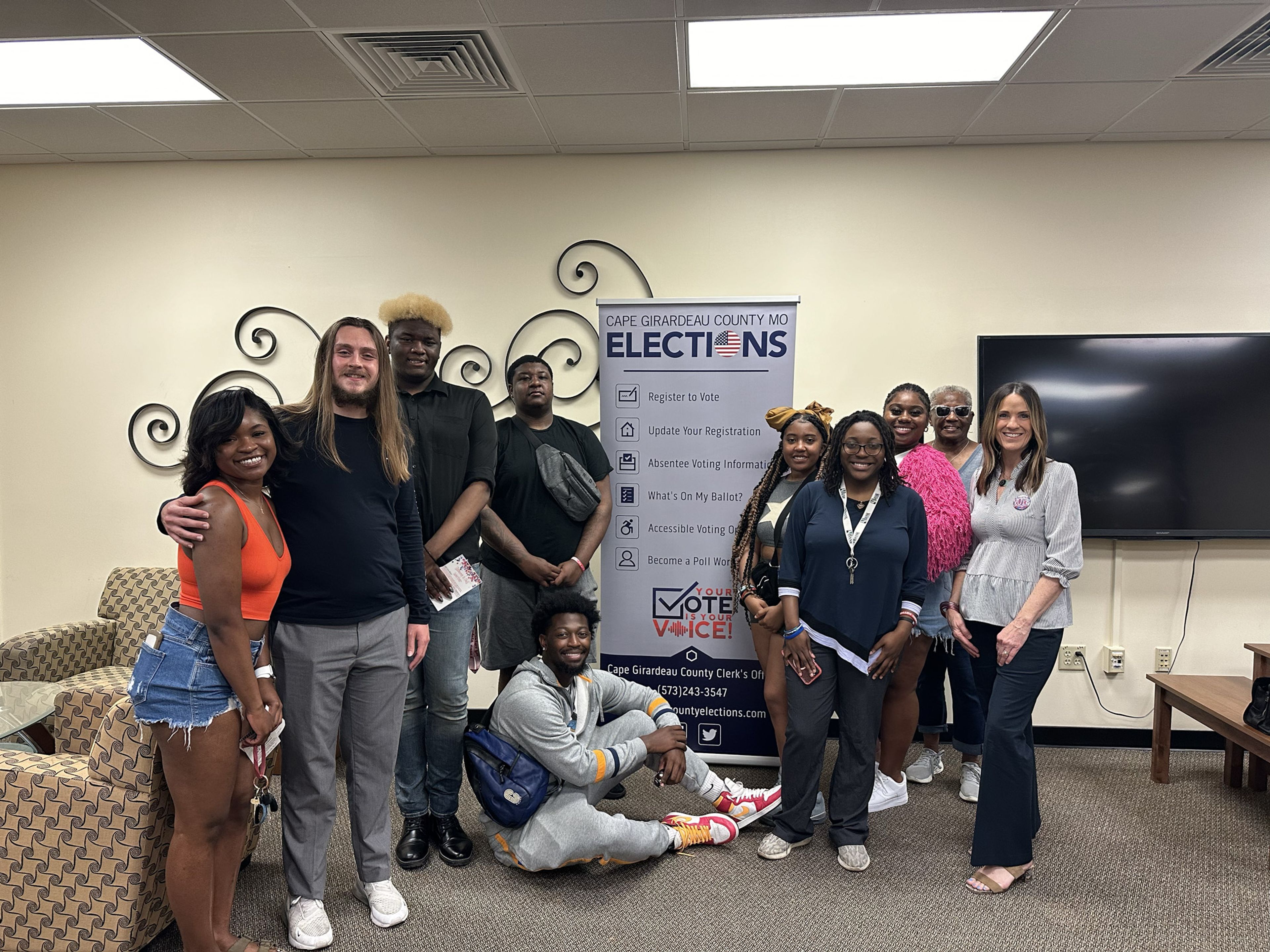Every year, Southeast Missouri State University graduates young educators who are faced with the task of successfully landing jobs in their chosen field. Professional organizations, such as the Student Missouri State Teacher's Association, aid educators in a variety of ways both before and after receiving their degree.
Ryan Mueller, student president of Southeast's SMSTA chapter, said the organization is a valuable resource to future educators.
"SMSTA is a kind of an organization that gets the future educators the chance to smoothly transition from college into the job market," Mueller said.
Members of SMSTA also are given the opportunity to receive further professional development, to participate in service projects and access to professional journals. Additionally, MSTA provides educators with liability insurance and legal advice.
SMSTA gives education students the opportunity to take part in service projects, such as Read to Succeed, which involves students reading to children at local libraries. SMSTA also will host a literacy walk on Southeast's campus later in the semester. The literacy walk will see children walking across campus, reading from large pages of a children's book. At the end of the walk, each child will have the opportunity to take a book home with them.
Dr. Larry Bohannon, SMSTA faculty adviser, said the organization provides information and opportunities that are difficult to offer within the classroom.
"There's just not enough time in a 16-week course that we can do everything that we would like," Bohannon said. "So some of these organizations help extend the classroom."
On March 1, SMSTA held a mock job interview at Dempster Hall. Candice Heider, a secondary education major who is currently student teaching at Cape Central High School, "interviewed" for a teaching position before a panel of four Southeast education faculty members.
The faculty interviewers asked Heider multiple questions about her teaching style, her approach to troubled students, her ability to work as part of a team and about her past accomplishments.
During the interview, Bohannon played the role of superintendent. After the faculty had finished interviewing Heider, Bohannon spoke to the education students in the crowd about how administrators may act or react during the interview process.
Heider said while she was not surprised by any of the questions asked, there were topics raised that were outside the bulk of her experience, which lies in secondary education.
"I thought that if I told them I did not know about it, but then explain what I did know, they would be like, 'OK, she can admit when she doesn't know something, but she can also tell us what she does know.'"
Students in the crowd also were invited to ask questions of the faculty members regarding situations or topics that may arise during an interview. Bohannon said this type of experience is what organizations such as SMSTA exist to provide.
"Professional organizations exist for the profession, to enhance the progression, to keep it vibrant, to keep it current [and] to protect the teachers," Bohannon said.
Mueller and Heider said despite all of the work that goes into becoming an educator, teachers are often sold short.
"Teachers do a lot," Heider said. "We don't show up at 7:30 and leave at 3. And if we do leave at 3, it doesn't mean we stop working."
"You'll go to work at maybe 6 o'clock, leave maybe 6 in the evening," Mueller said. "You're in it for the students, and you're definitely not in it for the pay. You need to love what you do to do this."
Bohannon said professional organizations provide additional support to educators, apart from what may be obvious. In addition to legal advice and liability insurance provided to paid members of MSTA, the organization also lobbies the government on behalf of teachers.
"The greatest thing is the lobbyists," Bohannon said. "They're there ... to help us with our salaries, to just be the voice of teachers."
Bohannon added that, as an educator and administrator, he has seen the way which organizations like MSTA work with teachers to improve the educational landscape.
"The great thing about MSTA is it really does believe in a collaborative atmosphere," Bohannon said. "So it's like, 'Let's all work this together. Let's come to a solution that everyone can live with and, particularly, what's best for children.'"





